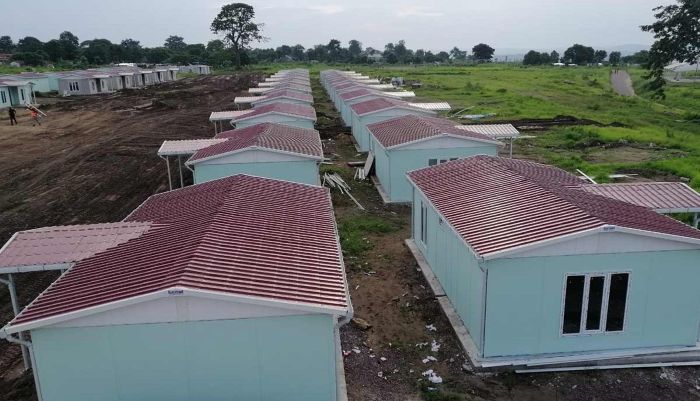(3 Minutes Read)
The Standing Committee on Transport, Infrastructure and Housing of the Namibian Parliament has strongly recommended that the government introduce subsidies to support local authorities in the provision and servicing of land for housing development. According to the committee, this financial assistance is vital to reducing the overall cost of development and significantly enhancing access to affordable housing, particularly for low-income earners and those without land.
Recognising the critical shortage of affordable housing in urban areas, the committee emphasised that all land developed under the Flexible Land Tenure Act should remain under state ownership. Instead of transferring ownership through purchase, the committee suggested that residents be granted usage rights, a model that preserves public ownership while still enabling individuals to legally occupy and improve the land.
“The Government should prioritise the full servicing of land in informal settlements using flexible tenure systems,” the committee stated. “This should be complemented by subsidies to ensure that the urban poor and landless have access to suitable housing and essential infrastructure.”
Additionally, the committee advocated for a flexible co-ownership housing model to be introduced by the Ministry of Urban and Rural Development (MURD), in collaboration with local municipalities. This model would cater to low-income urban populations and aims to protect residents from the risks of asset loss while fostering long-term economic resilience.
To broaden access to land and housing opportunities for marginalised groups, the committee called on the government and local authorities to promote public-private partnerships. They recommended land-sharing initiatives and collaborative models that leverage private sector involvement to improve land accessibility.
In a bid to strengthen land governance and streamline processes, the lawmakers proposed the creation of an autonomous National Land Agency (NLA). This institution would be tasked with overseeing land management, implementing policies, and coordinating efforts among local government bodies. The committee stressed that local authorities should be equipped with greater powers to simplify land delivery and eliminate intermediaries, thereby increasing transparency and efficiency.
Further recommendations include the urgent development of a National Land Use Master Plan, to be jointly implemented by the MURD, the Ministry of Agriculture, Fisheries, Water and Land Reform, and all local authorities. This plan would aim to address challenges such as illegal land occupation, promote sustainable urban expansion, and ensure optimal land use across various economic sectors.
Read Also;
In response to the growing problem of informal settlements, the committee proposed structured rehousing programmes. These would be spearheaded by major municipalities with the support of central government and would focus on upgrading existing informal settlements without displacing the current residents.
Overall, the committee’s recommendations outline a comprehensive framework to improve land access, housing affordability, and urban development in Namibia, with a strong focus on equity, sustainability, and inclusive growth.





